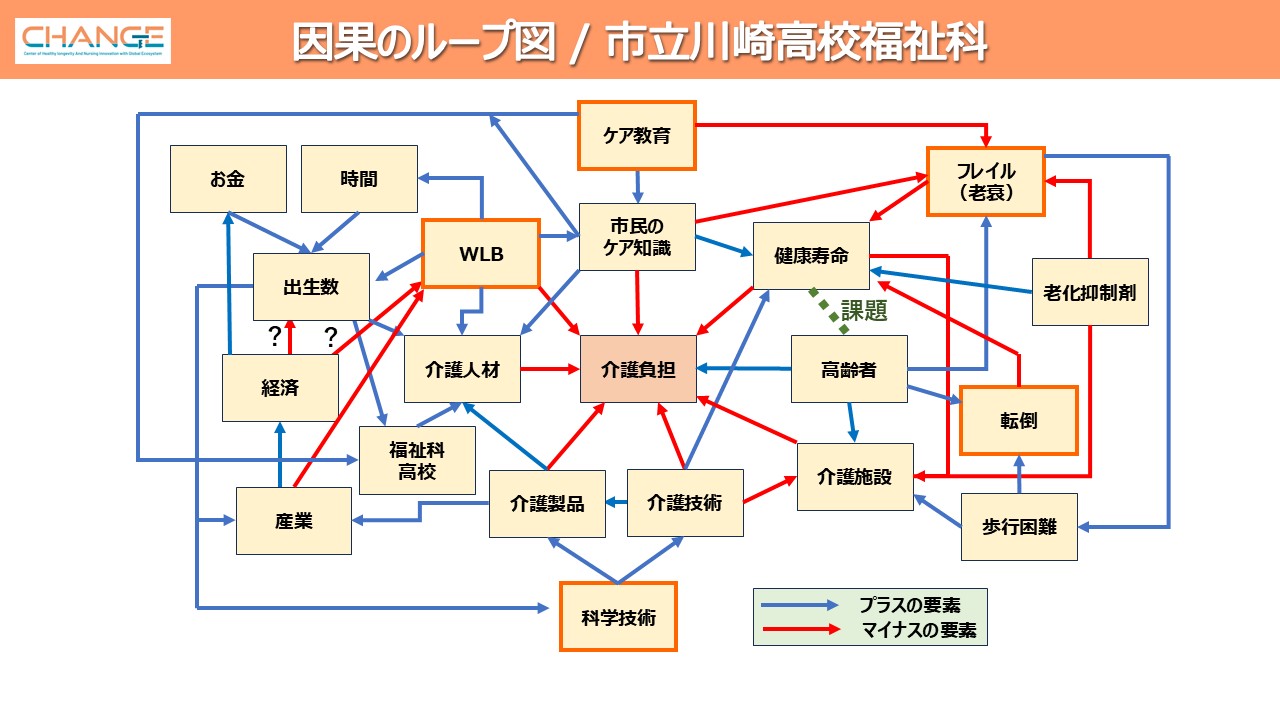A Welfare Class of High School on Declining Birthrates, Aging Population, and Caregiving Burdens
On September 10th, we conducted an outreach class at Kawasaki Municipal Kawasaki High School's Welfare Department, the only municipal high school in Kanagawa Prefecture offering a Welfare Department. Students gathered in the school's well-equipped nursing practice room and were divided into five groups. First, Project Sub-Leader Makoto Shimazaki explained the current state of declining birthrates and aging populations in Japan and major countries overseas, the situation in Kawasaki City, and the overview and activities of Project CHANGE. Next, Michiko Yagi, Managing Director of the Kawasaki Nursing Association, spoke about the current situation facing nurses, expectations for engineering, and hopes for the students who will shoulder future healthcare. After a break, during the second session, students created a “causal loop diagram” to comprehensively map factors related to “caregiving burden” and systematize their interrelationships. Students who had already undergone repeated care practice in actual settings rapidly generated ideas. Within about 30 minutes, a solid “causal loop diagram” was completed. Emerging themes included “developing more practice-oriented care welfare products alongside technological advancement” and “promoting more practice-oriented public awareness regarding care.” Both align with Project CHANGE's focus, but the key lies in the keyword “more practice-oriented.” Regarding the former, while many care devices already exist in nursing settings, many are complex to use or require considerable physical effort. There was a strong call for incorporating more feedback from the field. For the latter, many suggested it should be integrated into school education. Although the school already conducts care education for elementary students during summer break, participation is low. There was also a call to increase the number of teachers who recognize its necessity. Other insights included “improving work-life balance” and “preventing frailty and falls.” A joint workshop with the Science Department of Kawasaki City High School of Science and Technology, which has many students advancing to science and engineering fields, is scheduled for this November. Discussions on solutions for these issues will take place there.


